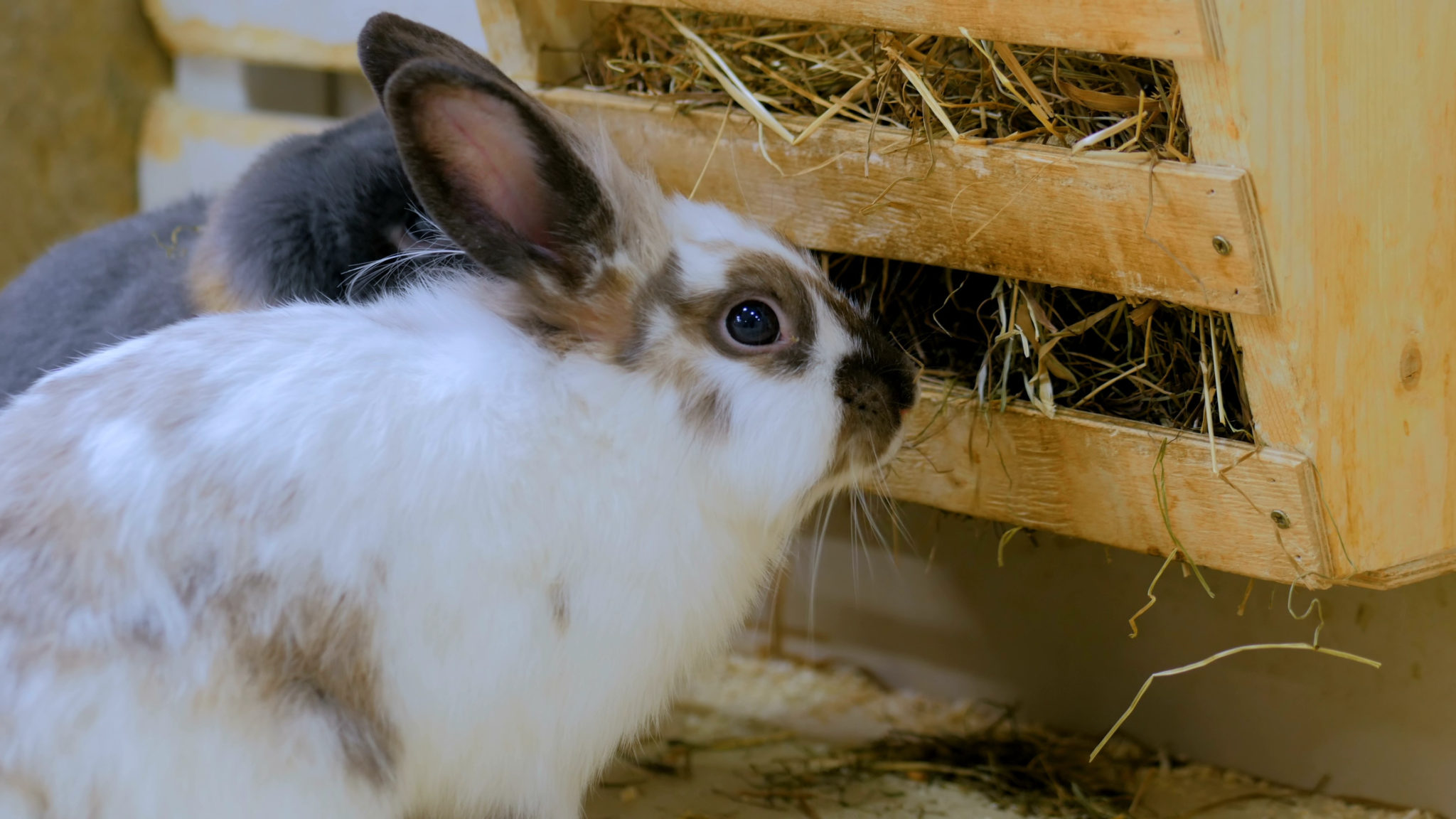We all know how hard it can be to make the right food choices. When there are so many tasty options available it doesn’t come naturally to all of us to pick pulses and quinoa over steak, chips and chocolate pud. Why should rabbits be any different? In fact, it’s perhaps harder for rabbits, who don’t have education on their side, to consciously make the healthy choice. In the wild, many species are programmed to make the most of any foods that will help see them through long cold periods, or times of resource scarcity, and this is where high calorie, fatty foods serve a great purpose. The domestication of bunnies has not stretched as far as to remove this instinct. Fear not! Fortunately we can make those choices on behalf of them. So let’s look at what this means in practise.
What does a rabbit need from its diet?
The nutritional requirements and gastrointestinal workings of a rabbit are extremely complicated as with all animals, wild and domesticated. However there are a few broad dietary ‘must haves’ that we can provide. One of these is the requirement for a good balance of nutrients. Not only is it important to include all the nutrients, vitamins and minerals that a rabbit needs, but also to feed them in appropriate quantities and proportions. Food affects every bodily process and can exert both a chemical and a mechanical action on our rabbits’ systems. For example, a rabbit’s gut must keep moving to prevent a painful and potentially life-threatening condition called gut stasis. It is also important to maintain a healthy weight in a rabbit to ensure they don’t become underweight or obese. Healthy teeth are of utmost importance in these creatures due to the fact that they grow continuously. A poor diet can cause considerable problems to the shape and length of a rabbit’s teeth leading to pain and malnourishment. We will describe how you can cater for your rabbits in all of these areas, to reduce the risk of serious health problems.
Avoid muesli mixes
Ever noticed at Christmas that there’s the same old toffee penny sweet left at the end of a box of Quality Street chocolates? Or is it the nutty ones that your family leaves? If you have ever fed a rabbit muesli mix, we’re sure you’ll see the same grains consistently left when you come to refresh their food daily. We’d guess that it’s the fibre-filled grains that your rabbits push around their bowl, and that the tastier, high in starch and sugar elements such as maize and pea flakes are all eaten up. The problem is that fibre is vastly important for a rabbit’s health. It promotes the much-needed movement of a rabbit’s gut as well as providing a protein and calcium source. Fibre, when chewed, also helps to grind back a rabbit’s teeth to keep them in healthy shape, preventing painful and potentially devastating dental disease. Foods high in starch and sugars are linked to obesity in rabbits, which in turn causes an array of problems; from loose faeces, dirty rear ends and fly strike, to aching joints and inactivity. The Royal (Dick) School of Veterinary Studies achieved some fascinating findings when they studied the effect of muesli diets on rabbits’ health. Muesli foods were linked to slower gut movements, dental problems and obesity, as mentioned above, but they also found that urinary problems and inflammation of the skin were also connected.
What can be done?
If all of this is ringing true with your rabbits, then it’s important to help them make some positive change, bearing in mind that any dietary changes should be made gradually so as not to upset the gastrointestinal system. The majority of a rabbit’s fibre should come from good quality hay or from grass, so you should ensure that this is available in abundance. You can supplement hay and grass with a pelleted, shop-bought rabbit food. The ingredients within these foods are shredded, mixed and pressed together, including all of the essential vitamins and minerals required, but without the ability for your rabbit to pick and choose between flavours. To keep their world interesting, a handful of vegetables can be given each day. You might be surprised at how many different veggies are safe and tasty to a rabbit and that a sprinkling of basil or coriander leaf will finish off the treat nicely. It’s vitally important to get a rabbit’s diet right and our team will happily discuss this in gre

